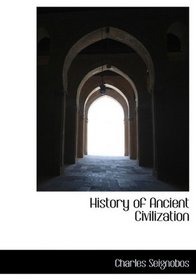Search -
History of Ancient Civilization
History of Ancient Civilization
Author:
Purchase of this book includes free trial access to www.million-books.com where you can read more than a million books for free. This is an OCR edition with typos. Excerpt from book: for the dead, i.e., temples and tombs. Only a slight amount of debris is left of their houses, and even the palaces of their kings in comparison with the tombs a... more »
Author:
Purchase of this book includes free trial access to www.million-books.com where you can read more than a million books for free. This is an OCR edition with typos. Excerpt from book: for the dead, i.e., temples and tombs. Only a slight amount of debris is left of their houses, and even the palaces of their kings in comparison with the tombs a... more »
ISBN-13: 9781117069791
ISBN-10: 1117069796
Publication Date: 11/18/2009
Pages: 392
Rating: ?
ISBN-10: 1117069796
Publication Date: 11/18/2009
Pages: 392
Rating: ?
0 stars, based on 0 rating
Publisher: BiblioLife
Book Type: Hardcover
Other Versions: Paperback
Members Wishing: 1
Reviews: Amazon | Write a Review
Book Type: Hardcover
Other Versions: Paperback
Members Wishing: 1
Reviews: Amazon | Write a Review




